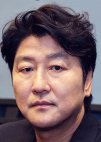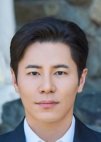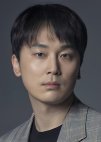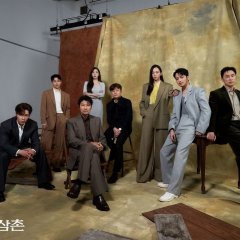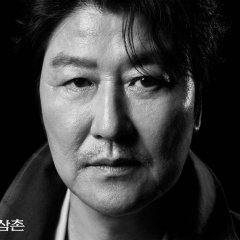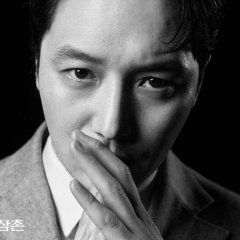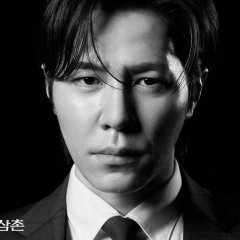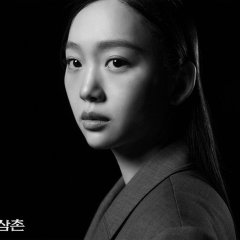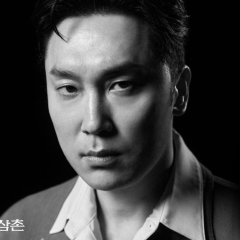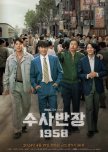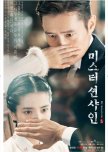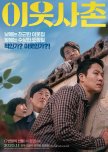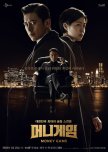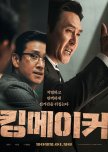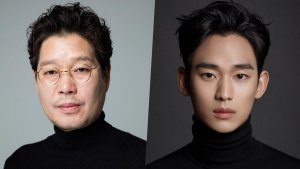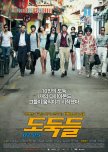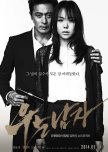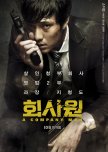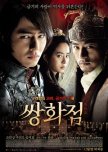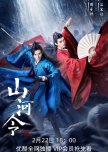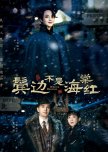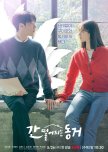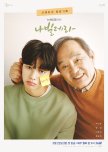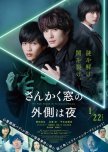 "Uncle Samsik" Drops Tiffany Young's Stills
"Uncle Samsik" Drops Tiffany Young's Stills - Italiano
- Arabic
- Русский
- Español
- Titolo Originale: 삼식이 삼촌
- Conosciuto Anche Come: Samsiki Samchon
- Sceneggiatore & Regista: Shin Yeon Shick
- Generi: Affari, Drama, Politico
Cast & Ringraziamenti
- Song Kang HoPark Doo Chil / Uncle Sam SikRuolo Principale
- Byun Yo HanKim SanRuolo Principale
- Lee Kyu HyungKang Sung MinRuolo Principale
- Jin Ki JooJoo Yeo JinRuolo Principale
- Seo Hyun WooJung Han MinRuolo Principale
- Oh Seung HoonAhn Ki CheolRuolo di Supporto
Recensioni

unterwegsimkoreanischenD
32 persone hanno trovato utile questa recensione
Questa recensione può contenere spoiler
Great performance & complex narrative re. challenges in politics during dreary SK post-war decades
"Uncle Samsik" offers a quite interesting narrative of the complex connections between party politics and the even more crucial backroom politics during South Korea's first republic (1948-1960). The KDrama is primarily set in the run-up to the turbulent events and nationwide demonstrations that led to the resignation of the first President Rhee and the founding of the second republic. However, the nation that had hoped for real democracy and prosperity stumbled into a third one just three years later through a military coup. Although this brought the hoped for prosperity via totalitarian capitalism, it was still far from real democracy...The story of the KDrama is based on historical events, themes and people of that time, but is ultimately fictional - even if historical film sequences are occasionally interspersed as part of the April Revolution. The focus is on Uncle Samsik. For all those, who don't know much about South Korean history, Uncle Samsik is the emotional reference figure and dramaturgical bridge that holds all the politically complex threads together. Even without prior knowledge, "Uncle Samsik" offers an exciting, haunting political drama that takes place in the post-war years. It is in particular thanks to the passion of the great actors who manage to captivate the audience with comparatively 'dry' fare. It is advisable to watch the episodes consecutively so as not to lose the thread.
With a fictional plot the well-known historic events and what actually drove the political actors of that time are portrayed from different perspectives. Thus they are shown as multifaceted people with complex motives and stories. Political calculation becomes tangible through relationship dynamics and formative personal experiences. What created the conditions for that dictatorial regime and its totalitarian capitalism to torpedo South Korea into dazzling prosperity - the needs, hopes, ideals and concerns underlying the political actors - are being filled with life. And at the same time also what the young democracy still has to gnaw at today - authoritarian directive, opaquely networked and strictly hierarchically structured backroom politics.
The time in which the KDrama is set is marking the initial struggle to set the course for 'right' politics and a democratic political culture to start with. You have to keep in mind that Korea has not yet been able to gain much experience with modern, international politics and economic policy on the world market. Until the end of the 19th century, the Joseon Kingdom had isolated itself from the rest of the world and concentrated on itself. Western modernity and international influences increased during the early 20th century, especially while the Korean peninsula was a colony of Japan. The guidelines for political autonomy and independent parliamentary politics were only set in the course of the founding of the Republic of Korea as South Korea in 1948. And even then, the USA kept a close eye on the young republic. The people in South Korea had not yet been able to seriously experience themselves as political mature people of a democratic country... The south, by now isolated from its rich in raw material and industrially well developed north, was at that time one of the poorest agricultural countries in the world.
Uncle Samsik vividly depicts the conflicting feelings in the country. He represents the prevailing longing for wealth... or simply for three meals a day. Uncle Samsik's nickname already reflects what he stands for: sam (eum)sik = three meals. He (as a good uncle) grants this to his people. So actually this very basic human need was the top priority in those politically turbulent years. Hunger and poverty shaped everyday life for the many. Democracy as a political ideal may sound good, but it doesn't fill your stomach. Samsik cares about people. His political goal is to use all possible means to support those politicians who have a solid concept and can bring the country to a point where the people will soon have enough to eat. The way to get there: to consistently boost the economic power of the economically weak country (compared to the north) and thus create appropriately paid work whose salary is enough to provide for the families... even if that might imply that the people´s hope for true democracy still has to wait a bit longer...
So would I recommend "Uncle Samsik"?
Yes, but...
It's one of those things with historical dramas that deal with Korea´s recent post-war history (and with the KMovies about the first post-war decades, too... you have to want to see it. Colours, light, selection of protagonists - this is often enough inevitably not a treat. Colorful robes that were still common in Joseon times are rarely seen anymore. After the Japanese colonial period and at least since the influence of the USA in the wake of the Korean War, fashion has been completely westernized. This makes the production design comparatively rather dreary - dark suits, ties and plenty of scenes inside or in the dark. It is about scenes inside offices, hotel bars, conference rooms and bunkers instead of lushly planted palace gardens, picturesque bridges, colorful pavilions and pagodas, or the shaded, meditative palace walkways - it's all history. Politics by now happens behind closed doors. If suitable, it might sooner or later end up on the streets, too. Female characters with impact are also rare - gone are the lively days of palace ladies, servants and princesses, scheming dowagers and queens or spying gisaeng... Instead, there are lots of serious men in their (as I mentioned before) dark suits, preferably smoking and debating or giving orders in back rooms. Politics is a man's business - a power struggle that is eventually resolved with the help of thugs and cloak-and-dagger operations... (After all, women's power is at least trying to carve out some space in "Uncle Samsik"...)
In short, the setting is rather dark, complex, even complicated - and ties-heavy. Be aware.
Apart from that, "Uncle Samsik" is really well done. Vividly played and thematically differentiated, the KDrama brings those dreary, sobering post-war decades in South Korea to the international DisneyPlus audience, presenting it as a time that, despite all the prevailing corruption, arbitrariness and obedience to authority, was also characterized by a lot of idealistic passion and political hope. Once again, high-end historical drama à la KDrama...
Questa recensione ti è stata utile?

On One Hand Intrigue, Betrayal, Redemption - Other hand Democracy, Power, and Sacrifice
A MUST WATCH PERIODICAL POLITICAL THRILLER FOR EVERYONEFIRST POINT:
Before going to my thoughts, I want to say something: I majored in political science and civics subjects and had some experience in history. I know everyone will think about what I’m trying to say about my subjects. The reason is that all of this is made for the boy who loves politics in real life, not only in dramas, movies, and shows. So, whenever I hear there’s a political drama, I always wait for them, irrespective of the cast, because complete political dramas are so rare and are used as side elements in some dramas. I watched a political thriller a long time ago, “Designated Survivor,” which was one of the major political thrillers in kdrama. It started very well but failed to impress with the last episode. Overall, it was a good political thriller without the last two episodes.
Second point:
My second point is that I became a periodical genre fan after watching some kdramas, impressed by their visuals, art, custom designs, story set-up, and mostly because I had the chance to watch the 90’s and sometimes 80's culture of Hanguk. Recently, I watched “Chief Detective 1958." I loved the drama’s 1950-60’s art and everything.
So, I think everyone understands my two points on “Uncle Samsik” before going to talk about my thoughts. And everything I write in this review is purely based on my thoughts and what I experienced from the drama, both emotionally and critically.
A group of wealthy political members is trying to create political instability in South Korea between 1950 and the 1960s to encash that opportunity to take over the country's power into their hands and make them whatever they want. For real, there are some groups that existed in this generation too, like Deep State in the USA (this is only for reference and not intended to compare any political issues with it; https://en.wikipedia.org/wiki/Deep_state_in_the_United_States ). To stop them, some other people, both political and non-political, are trying to bring that group down, like the main leads, Doo Chil, Kim San, Hanrim, and some other military members. But each of their ideologies is different, but their main objective is to carry the country forward to development and keep democracy in the country. Each character clearly has a motive, trying to protect the democracy of their country.
CHARACTERIZATIONS -
In Kim San's character role, I really felt the way he used to dream about the country’s development project, “National Reconstruction Plan.” He did everything and sacrificed his life things in the way of life dedication to the nation, even sometimes breaking his ideologies to create a better country for his people. TBH, I loved Kim San's character (Byun Yo Han), even though he sometimes chose the wrong steps to form his dream project. Byun Yo Han, you did an excellent job. Pure acting masterclass, the emotions, and the way you portray his views on the nation's development are truly amazing. I hope I will see you in more dramas in the future.
Song Kang Ho is the acting pillar of this drama and a well-known veteran actor. Exceptional performance in the Samsik role; this one is the character I can’t forget easily. The director’s choice of Samsik and Kim San roles is one of the best castings done by casting gods.
The Jan Ki Joo role was introduced very well in the beginning, and I expected the same character length from her till the end since she is a journalist, but after 6 episodes, her character was only used to show, oh, she is also a character in this drama, but there is no big scope for her. This is one of my disappointments with the director.
A remarkable performance by the supporting cast and every actor’s exceptional effort made this drama a truly outstanding drama in kdrama land.
NARRATION -
Every episode is full of talkative mode more than taking action. Of course, this is political drama, so most of the scenes and most of the time are carried by the characters talkative mode, and we will expect something more than talkative only in the climax or pre-climax. This drama shows how situations can change a person and persuade him to go to any lengths to do what he wants in the political sense. Since it’s a political genre, we have to expect betrayals, allies, and foes in the way of choosing a path to take or implementing the things we have to do, both politically and geographically.
The relationships of Samsik between other character roles will meet us in different ways, like when he sometimes looks evil and good, but one thing never changes: his loyalty towards the people he trusts. There are no flaws in writing or directing.
DRAMAS BIGGEST ASSET - SCREENPLAY & STORYTELLING.
Uncle Samsik follows the nonlinear storytelling aspect, which creates dynamic storytelling by using screenplay magic elements like flashbacks, flashforwards, multiple points of view, and non-sequential structure of the story. Handling these types of elements often confuses the viewers, and I also faced the same confusion in some dramas with nonlinear storytelling, where scenes constantly jump from one time to another without much clarification, like whether it's a flashback or current running story narration. But in this drama, every scene is perfectly placed where it fits and is not given a chance for story narration confusion. Overall, a fantastic “SCREEN PLAY”.
ONE OF THE BEST EPISODE EVERY MADE IS KDRAMA -
Specially talk about the 14th epic episode—to me, it's one of the best episodes ever made in a kdrama because it was based on the real events of South Korea in the 1960s called the April 19th Revolution ( https://en.wikipedia.org/wiki/April_Revolution ). The representationalism in the 14th episode showed how that revolution happened. Here, I’m bowing to the director because the way he brought the historical change movement to us is really breathtaking and a spectacular episode.
My Only Disappointment:
1) NO big scope for Jan Ki Joo's character role even though it has potential and failed to use her character's professional job Journalism in the story changing way. Usually, Journalism vs. Politics is the greatest El Clásico in nature, but the director is mainly focused on bringing political momentum and ignores journalism. But I’m not saying he completely left the journalism point, but he used it in a narrow way to move some scenes forward; even in the scene about Ballot Box being stolen, there is no strong focus on the press.
2) ENDING:
After watching the first episode, I got an idea about the ending but never expected this type of ending. I know it’s good for writers to write off a main character in periodical or historical dramas. But the director of Uncle Samsik made a very bold move in the ending. I don’t know about others who watched this drama or what their opinions were on the ending, but to me, it’s one of the most disappointing endings in the kdrama. The basic element of every drama is that good is the winner over evil, but I don't know what the director is trying to say with that type of ending; I think he wants to say, “No matter how hard you try to change the country or bring down powerful, evil political figures, there is no turning back; you will only suffer losses and states that the outcome may not be favorable; the effort may result in personal sacrifices or negative consequences of what is going on now.”.
I don’t want to talk more about the ending; watch and take your own opinion, but personally, I’m disappointed.
Questa recensione ti è stata utile?




